Liposuction in Tunisia
Search and Compare the Best Clinics and Doctors at the Lowest Prices for Liposuction in Tunisia
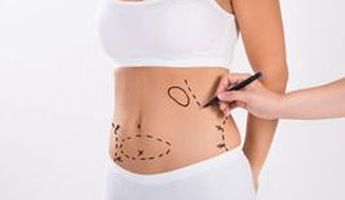
Find the best clinics for Liposuction in Tunisia
With Medijump you can browse 9 facilities offering Liposuction procedures in Tunisia. The cheapest price available is $1,067 in Monastir. And for the cheapest price globally, prices start from $120 in Ukraine.
Liposuction in Monastir
Price: $ 1,067
Liposuction in Tunis
Price: $ 1,228
Ukraine offers the best prices Worldwide
Price: $ 120
From 4 verified reviews
Samir Derradji, 18 March 2018
Hello I follow sick dalger Algeria I ask you a preforma for an opairation on the colon .Thank you
From 11 verified reviews
Craig Mills, 30 July 2019
Excellent private health care looked after my soon after he drowned in sahara beach hotel this month would definatly recommend being cared for there staff were amazing
From 37 verified reviews
Saoussen Saidani, 13 June 2020
My 12 year old daughter Lina has had surgery Pancreas tumorHeavy Operation which went very wellI thank all the staff of the Pasteur clinic for their hospitality and their hygiene ...I thank the doctors who attended the operation and in particular the surgeonAYADI Sofiene who accompanied us from the start for his professionalism as well as DR Walid Miraoui. The discovery of this tumor is done in a very short time a week to manage allThe support of Surgeon Ayadi Sofiene was really perfect as a parent we were reassured and above all in confidence.And especially I thank them for the moral support of My Daughter Lina who kept the smile until the end and who It is found in Total confidenceThank you so much for saving our childMr er Mrs Saidani
From 11 verified reviews
Toumi Mondher, 02 April 2019
The Department of Extraction and Billing at the Center of Imaging and Radiology, two patients, treated me with a reputation as a Tunisian clinic, and I bear the responsibility to speak this
From 9 verified reviews
Ibtyhel Ben bassine, 19 April 2019
I slept my little girl on Thursday, March 8, 2018, was at Top, my gygy, the nurses .... they put me in a calm and clean environment with a service of excellence .. thank you prts and especially pr Dr. hichem
Clinique Taoufik, located in Boulevard Mohamed Bouazizi, Tunis, Tunisia offers patients Liposuction procedures among its total of 225 available procedures, across 24 different specialties. Currently, there's no pricing information for Liposuction procedures at Clinique Taoufik, as all prices are available on request only, whilst the national average price is approximately ฿71,790. There are many specialists available at the Clinic, with 10 in total, and they are accredited by ISO 9001:2008
Clinic Apollon, located in Boulevard Mohamed Bouazizi, Tunis, Tunisia offers patients Liposuction procedures among its total of 90 available procedures, across 1 different specialties. Currently, there's no pricing information for Liposuction procedures at Clinic Apollon, as all prices are available on request only, whilst the national average price is approximately $1,995. All procedures and treatments are undertaken by just a small team of specialists, with 2 in total at the Clinic, and they are not accredited by any recognized accreditations institutes
Cosmeticare Travel, located in Boulevard Mohamed Bouazizi, Tunis, Tunisia offers patients Liposuction procedures among its total of 34 available procedures, across 4 different specialties. Currently, there's no pricing information for Liposuction procedures at Cosmeticare Travel, as all prices are available on request only, whilst the national average price is approximately $1,995. There is currently a lack of information available on the specialists practicing at the Hospital, and they are not accredited by any recognized accreditations institutes
Aesthetica Tour, located in Boulevard Mohamed Bouazizi, Tunis, Tunisia offers patients Liposuction procedures among its total of 42 available procedures, across 9 different specialties. Currently, there's no pricing information for Liposuction procedures at Aesthetica Tour, as all prices are available on request only, whilst the national average price is approximately $1,995. All procedures and treatments are undertaken by the lead specialist at the Hospital, and they are not accredited by any recognized accreditations institutes
- Home
- Tunisia
Compare Before & After Photos of _procedure_photos.phpLiposuction
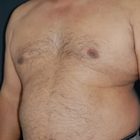
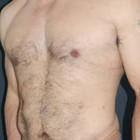
Front view
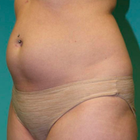
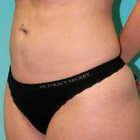
Half-side view
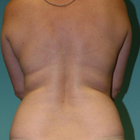
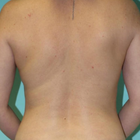
Full-side view
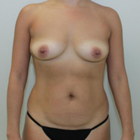

Front view
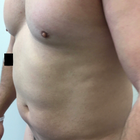
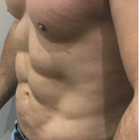
Half-side view
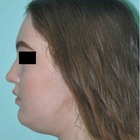
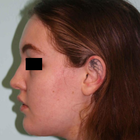
Full-side view
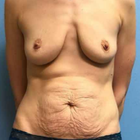
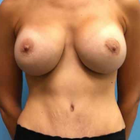
Front view
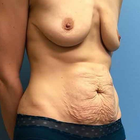
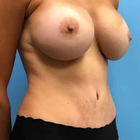
Half-side view
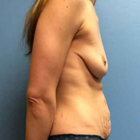

Full-side view
WHY US?
At Medijump, we're making medical easy. You can search, compare, discuss, and book your medical all in one place. We open the door to the best medical providers worldwide, saving you time and energy along the way, and it's all for FREE, no hidden fees, and no price markups guaranteed. So what are you waiting for?

Free

Best Price

Widest Selection

Risk-Free
What you need to know about Liposuction in Tunisia?

Liposuction is a cosmetic surgery that “sucks” out fat from areas that are hard to lose through a healthy diet and exercise, while liposculpture is the shaping of the skin back to its desired shape. Both are done in conjunction with one another at the same time. Most areas can be treated. Traditionally the most popular areas to treat are the stomach/abdomen, chin and neck, love handles, arms, and inner and outer thighs. Becoming more popular are the knees, calves and ankles, all with very successful results.
While liposuction can permanently remove fat cells and alter your body shape, it should not be viewed as a quick fix for individuals who are significantly overweight. The procedure works best for those who have already lost some weight themselves and are close to their ideal weight but need help tackling stubborn areas of fat in problem areas.
What is the cost of Liposuction in Tunisia?
When you're thinking about liposuction in Tunisia, one of the first things you probably wonder about is the cost. Here's the thing: the price isn't the same for everyone. It hinges on a few details like how many parts of your body you’re getting treated, how complex the treatment is, and the professional fee of your doctor. Costs for anaesthesia and the use of the surgical facility are also added to the bill. It's vital to remember, too, that because liposuction is often carried out for aesthetic reasons, normal health insurance might not cover it.
Can Liposuction be used as a weight-loss method?
Unwanted fats are very hard to get rid of especially if you are not a fan of exercise or diet. Liposuction, also known as Lipoplasty, liposculpture suction, lipectomy or simply lipo, basically eliminates unwanted fats by suctioning it away. Despite the growing trend of non-invasive fat reduction treatments, liposuction is still the leading procedure to remove stubborn fat cells.
Liposuction permanently removes fat cells and enhances the shape of your body. A plastic or dermatologic surgeon usually performs this type of procedure on the patient’s belly, hips, thighs, buttocks, arms, back or face to improve their shape. Furthermore, liposuction can be done together with other plastic surgeries such as facelifts, breast reductions, and tummy tucks.
This treatment procedure is particularly used for aesthetics, mainly to improve a person’s appearance. In most cases, maintaining and achieving such positive results will depend on your lifestyle.
What does a Liposuction Procedure Involve?
Before you have the treatment, a series of tests are required to ensure if you are fit for the surgery. You will also need to sign a consent form to confirm that you are fully aware of the risks, benefits and possible alternatives to the procedure.
You will likely be put under using general anesthesia, which can last for 1 to 4 hours. An epidural can also be used for procedures on the lower part of the body, although this is becoming increasingly unpopular now. Alternatively, you may be given local anesthesia if the procedure will be on small areas of your body. You may be asked to stand up during the procedure to ensure proper fat removal, but you will not feel any pain.
Tiny incisions will be made in the areas of interest through which a cannula can fit. This thin tube-like device is connected to a vacuum, capable of suctioning the fat from within your body. There are a few common techniques used, including Laser-Assisted or SmartLipo, UAL (Ultrasound-Assisted Lipo) or the most popular technique, Tumescent Lipo - this involves the pre-injection of a saline solution to help separate the fat from the blood, so less blood is removed. You'll discuss the best option with your surgeon before confirming what type of Liposuction is best for you.
How Long Should I Stay in Tunisia for a Liposuction Procedure?
Generally, patients who have received general anesthesia will be required to spend the night in the hospital (in-patient). Patients, who have had local anesthesia, may be able to leave the hospital on the same day.
After the operation, you will have to wear support bandages (support corset, bandages or elasticated support) whilst healing. Expect some pain, swelling and bruising during the following days and weeks. Your surgeon will prescribe medication to help control your pain and antibiotics to reduce the risk of infection. Furthermore, your stitches may be removed during your follow-up appointment with your surgeon. You should expect to stay in Tunisia for about a week post-op to allow for the initial recovery and check-up appointments, which will include the removal of stitches.
What's the Recovery Time for Liposuction Procedures?
Numbness in the specific area of your body where the fat was removed is to be expected for the first couple of weeks, usually, this will improve after 6 to 8 weeks. You may also need to wait a few days before going back to work. As for your normal activities, especially exercise, you may have to wait a few weeks before resuming.
Overall, the recovery time may vary from patient to patient. In most cases, patients can return to light activities within 2 to 3 days and are also able to go back to work after two weeks. As for the results, you may see visible results after 3 to 4 weeks, however, it can take several months before you see the final outcome.
What sort of Aftercare is Required for Liposuction Procedures in Tunisia?
Just like any other cosmetic surgery, following your surgeon’s aftercare instructions is vital in achieving and maintaining the best results. If the procedure was done above your waistline, you may be advised to sleep propped on pillows to have elevation on the specific area. This helps drain the fluids and prevent them from pooling. Furthermore, applying cold compress on a certain area where the procedure was performed is highly recommended, this will reduce inflammation and bruising especially during the first few days.
What's the Success Rate of Liposuction Procedures in Tunisia?
Liposuction remains one of the most popular cosmetic surgeries with a success rate of 85%, offering patients the enhanced body shape they've been craving. However, just like any other surgeries, it also comes with possible risks. Complications vary and are dependent on the procedure is as well as your surgeon’s skills. Possible risks and complications include:
- Severe bruising
- Inflammation
- Blood clot forms in veins, causing inflammation and complications (Thrombophlebitis)
- Kidney or Heart problems - changes in the body's fluid levels during the procedure may cause kidney or heart problems.
- Pulmonary embolism - when fat gets into your blood vessels and travels to your lungs, eventually, blocking your lungs.
Are there Alternatives to Liposuction Procedures in Tunisia?
CoolSculpting – is a fat freezing liposuction alternative. This is more suited to people who are close to their target weight but still have unwanted pockets of fat. Coolsculpting is a fat-freezing procedure that crystalizes your fat cells until they break apart painlessly.
Ultrashape - a non-invasive procedure that doesn’t require the need for anesthesia. This treatment procedure will make use of a body sculpting device that vaporizes fat cells within the targeted area with waves of ultrasound energy. Fat cells are permanently flushed out of your body, giving you a more natural-looking fat loss.
How does Liposuction differ from CoolSculpting and Vaser liposuction in terms of technique?
Liposuction vs Vaser Liposuction
Like traditional liposuction, the purpose of Vaser liposuction is to change the contours and shape of the body by removing persistent fat deposits. The word Vaser is actually an acronym for Vibration Amplification of Sound Energy at Resonance. This specialized ultrasound technology breaks down the fatty tissues using ultrasonic frequency waves, which is why it's often referred to as Ultrasonic Liposuction or Ultrasound Liposuction.
Liposuction vs CoolSculpting
CoolSculpting is the new non-invasive, freezing method used to also change the body contours and shape, however, this method does not require the use of a cannula so there is no damage to the overlying skin. Instead, it involves the controlled application of cooling localized fat deposits, which are then expelled from the body through the kidneys.
How safe is Liposuction in Tunisia?
Liposuction, when performed in Tunisia by a qualified and experienced plastic surgeon, is generally considered safe. The procedure has evolved significantly since its introduction, with advancements in technology and techniques contributing to its safety profile. Most liposuction procedures are performed without major complications, and patient satisfaction rates are high. However, as with any surgery, there is always an inherent risk.
It's crucial to have a detailed discussion with your surgeon regarding the safety of the procedure. The surgeon should be open about potential risks and complications, and explain how they would handle them should they arise. Factors such as your overall health, medical history and the area or the amount of fat being removed can influence the risks associated with liposuction.
What Should You Expect Before and After a Liposuction?
After your surgery, expect some swelling and discolouration in the areas where the fat was removed. To assist in healing and lessen swelling, you'll be given a snug garment to don. It is advisable to arrange for someone to take you home after the surgery and be with you for the initial day after the procedure. Though some changes will be noticeable soon after the surgery, the best results will take shape once the swelling has fully dissipated, which usually takes around 3-6 months. Regular check-ins with your surgeon are vital to ensure your recovery is progressing as expected.
As the wise saying goes, "Your waistline is your lifeline." Liposuction does remove fat cells for good, but weight gain post-procedure can cause the leftover fat cells to grow, potentially in different areas of your body. Therefore, a balanced diet and regular exercise are crucial for maintaining your new silhouette.
How Can I Prepare for Liposuction in Tunisia?
Prepping for a liposuction surgery in Tunisia? You've got this! Here are some absolutely essential steps you should follow for a smooth and successful procedure:
- Consultation: First things first. Have an in-depth consultation with your plastic surgeon. They'll assess your health status and discuss your goals. Taking this information into account, they'll provide some key instructions for you leading up to the surgery day.
- Healthy Lifestyle: In preparation for the procedure, it's of utmost importance to maintain a healthy lifestyle. Get in regular exercise. Eat balanced meals. Hydrate frequently. If you smoke, now is the time to quit. And hold off on alcohol. Your body will be on the fast track to healing, thanks to these healthy habits.
- Follow Instructions: Your surgeon will give you a set of preoperative instructions. Avoiding certain medications or supplements might be on the list. Stick to these guidelines religiously.
- Support Person: And lastly, on surgery day, make sure to have a trusted friend or relative by your side. Once the procedure is completed, you'll need a safe ride back home.
Whilst the information presented here has been accurately sourced and verified by a medical professional for its accuracy, it is still advised to consult with your doctor before pursuing a medical treatment at one of the listed medical providers
No Time?
Tell us what you're looking for and we'll reachout to the top clinics all at once
Enquire Now

Similar Procedures in Tunisia
Prices Start From $31

Prices Start From $120

Prices Start From $120

Prices Start From $120

Prices Start From $120

Prices Start From $31

Prices Start From $120

Popular Procedures in Tunisia
Prices Start From $111

Prices Start From $931

Prices Start From $76

Prices Start From $236

Recommended Medical Centers in Tunisia for Liposuction

- Interpreter services
- Translation service
- Religious facilities
- Medical records transfer
- Medical travel insurance
- Health insurance coordination
- TV in the room
- Safe in the room
- Phone in the room
- Private rooms for patients available

- Interpreter services
- Translation service
- Religious facilities
- Medical records transfer
- Medical travel insurance
- Health insurance coordination
- TV in the room
- Safe in the room
- Phone in the room
- Private rooms for patients available

- Interpreter services
- Translation service
- Religious facilities
- Medical records transfer
- Medical travel insurance
- Health insurance coordination
- TV in the room
- Safe in the room
- Phone in the room
- Private rooms for patients available

- Interpreter services
- Translation service
- Religious facilities
- Medical records transfer
- Medical travel insurance
- Health insurance coordination
- TV in the room
- Safe in the room
- Phone in the room
- Private rooms for patients available

- Interpreter services
- Translation service
- Religious facilities
- Medical records transfer
- Medical travel insurance
- Health insurance coordination
- TV in the room
- Safe in the room
- Phone in the room
- Private rooms for patients available

- Interpreter services
- Translation service
- Religious facilities
- Medical records transfer
- Medical travel insurance
- Health insurance coordination
- TV in the room
- Safe in the room
- Phone in the room
- Private rooms for patients available

- Interpreter services
- Translation service
- Religious facilities
- Medical records transfer
- Medical travel insurance
- Health insurance coordination
- TV in the room
- Safe in the room
- Phone in the room
- Private rooms for patients available

- Interpreter services
- Translation service
- Religious facilities
- Medical records transfer
- Medical travel insurance
- Health insurance coordination
- TV in the room
- Safe in the room
- Phone in the room
- Private rooms for patients available

- Interpreter services
- Translation service
- Religious facilities
- Medical records transfer
- Medical travel insurance
- Health insurance coordination
- TV in the room
- Safe in the room
- Phone in the room
- Private rooms for patients available

- Interpreter services
- Translation service
- Religious facilities
- Medical records transfer
- Medical travel insurance
- Health insurance coordination
- TV in the room
- Safe in the room
- Phone in the room
- Private rooms for patients available
Liposuction in and around Tunisia
About Tunisia
Tunisia is one of the few countries which can cater to everyone and it manages to combine climate, golden beaches, history, and shopping for an “all-around” experience. It has a high standard of healthcare and an excellent reputation for cosmetic surgery. Cosmetic and plastic surgeons are regulated by the Tunisian Ministry of Health and the private clinics have state-of-the-art equipment and English-speaking staff. Tunisia welcomes an ever-increasing number of medical tourists each year, many of whom travel for Liposuction procedures. Medical Tourists travel from all across the globe, particularly from Europe and neighboring African countries with an inferior healthcare system. Popular medical tourism destinations outside of the capital, Tunis, include Sousse and Mahdia
Popular Parts of Tunisia
- Tunis, the country’s capital, is overflowing with a history that dates from the 4th Century BC. The city is divided into two parts, the old city known as the medina and the new city (or Ville nouvelle in French). Many tourists visit Tunis to see the Archaeological Site of Carthage which is also a UNESCO World Heritage Site. The beautiful Islamic architecture in medina also attracts many tourists to the city.
- Tozeur is known as a home to an enchanting desert oasis, which was a place to rest and refuel for caravans crossing the Sahara. Another main attraction in the city is the medina, where tourists can find lines of beautiful brick-patterned traditional dessert houses. Chott el Djerid, Sahara’s largest salt pan, is a popular day-trip destination.
- Sousse is located on the coast of the Mediterranean Sea. It offers good beaches with a clear blue sea. The city has been fought over by the Romans, Arabs, and Europeans, giving it a colorful history and culture. Sousse Archeological Museum is one of the most visited sites in the country; it has the second largest collection of mosaics in the world.
- Hammamet is the country’s original tourism resort. The city has beautiful gardens filled with oranges, lemons, and other citrus plants. It also has wonderful sandy beaches with crystal clear water. Just like any other city in Tunisia, this city is also brimming with interesting histories. Sites such as The Gafsa Museum and Bardo Museum will give insights about the Islamic faith and culture.
- Douz, also known as “the gateway to the Sahara.” Tourists who want to experience the Sahara Desert come to this city. Take a camel trip or a 4-wheel-drive into the Sahara or see the Museum of the Sahara that has an interesting collection portraying traditional Saharan life.
Weather and Climate in Tunisia
The North of Tunisia has a subtropical Mediterranean climate with mild rainy winters and hot summers. The South and inland areas have a tropical desert climate.
The weather is relatively comfortable throughout the year. Summer starts in June and lasts until August. The average temperature is between 28 °C to 32 °C with July and August being the hottest months. The heat is not as bad on the coast because of the seaside breeze. Be aware that July to September is the jellyfish season.
The heat decreases in autumn and the weather is somewhat more comfortable. There are occasional rain showers in September. The temperature in October can be like summer during day time, but cold at night. October has more rain than September. The season lasts for three months from September to November with an average temperature of around 19 °C to 29 °C.
The weather in winter can be uncertain. The average temperature is between 16 °C and 18 °C, but it can drop to 7 °C at night and below 0 °C in highlands and deserts and a clear sky is rare during this season.
Spring comes in March and the temperature can rise to 20 °C. Mornings and nights are cold; there is still a high probability of rains and thunderstorms at the end of this season.
Getting Around in Tunisia
Tunisia has several international airports. The main airport is Tunic-Carthage International Airport. It has international connections with major European countries and the Middle East. The airport is the hub for Tunisair, Tunisair Express, and Nouvelair. Other airports that have international flights are Enfidha-Hammamet, Monastir Habib Bourguiba, Djerba-Zarzis, and Tabarka-Aïn Draham.
Taxis and buses are available to get to the city center from Tunis Airport. The SNT bus line departs every 30 minutes from the airport, the ticket costs less than 1 TND. There is also the TUT bus which departs every 15 minutes and is more luxurious and expensive.
Airport taxis are available at the airport taxi stand and are usually metered. Always make sure that the driver turns the meter on before riding the taxis. A journey to the city should cost around 5 TND. An extra cost will be added if you have baggage.
Getting around in Tunisia can be done by several transportation modes. Tunisair Express provides domestic flights between Tunis, Tozeur, Djerba, and Gabes. The Train is also available and the national train company in the country is SNCFT that runs modern and comfortable trains from Tunis to Sousse, Sfax, and Monastir. There are three classes of service that tourists can choose. The fare from Tunis to Sousse is between 6 to 10 TND. The long-distance bus is an economical option to travel between big cities such as Tunis, Hammamet, and Nabeul. The buses usually depart every 30 minutes.
Tourist Visas in Tunisia
Citizens of 97 countries (including Australia, China Singapore, the United States, and Russia) can visit and stay in Tunisia for up to 90 days without a visa. Other nationalities are advised to check with their local Tunisia embassy. Tunisia provides an online visa application for nationalities that needs a visa to enter. The eVisa will simplify the process of obtaining travel authorization to enter the country.
Additional Information
-
Local Currency: the local currency is the Tunisian dinar (TND). 1 USD converts to 2.61 TND.
-
Money & Payments: ATMs can be found in most cities and in all tourist areas. Many ATMs have withdrawal limits of 400 TND. Credit cards (MasterCard and Visa) are accepted in major cities and tourist areas. They can be used for shops, car hire, or top-end accommodation. Always make sure to carry cash if you want to travel outside major cities. Tipping is not necessary but will be appreciated.
-
Local Language: Arabic is the official language of Tunisia. French is very common due to the country’s former status as a French protectorate. English is still very limited except in the tourist areas and expensive hotels.
-
Local Culture and Religion: Islam is the major religion with 98% of the population identified as Muslim. There is a small group of Christian and Jews. Since most of the population is Muslim, always remember that the dress code is important in Tunisia.
-
Public Holidays: Tunisia celebrates major Islam holidays. The country hosts several annual festivals throughout the year such as The International Festival of the Sahara, Yasmine Hammamet Festival, and the International Festival of Carthage.
Popular Searches
- Plastic Surgery in Thailand
- Dental Implants in Thailand
- Hair Transplant in Thailand
- Breast Augmentation Thailand
- Gastric Sleeve in Thailand
- Gender Reassignment Surgery in Thailand
- Laser Hair Removal in Bangkok
- Botox in Bangkok
- Dermatology in Bangkok
- Breast Augmentation in Bangkok
- Coolsculpting in Bangkok
- Veneers in Turkey
- Hair Transplant in Turkey
- Rhinoplasty in Turkey
- Stem Cell Therapy in Mexico
- Rhinoplasty in Mexico
- Liposuction in Mexico
- Coolsculpting in Tijuana
- Rhinoplasty in Korea
- Scar Removal in Korea
- Gastric Sleeve in Turkey
- Bone Marrow Transplant in India
- Invisalign in Malaysia
- Plastic Surgery in the Dominican Republic
- Tummy Tuck in the Dominican Republic
- Plastic and Cosmetic Surgery in Poland
- Rhinoplasty in Poland
- Hair Implant in Poland
- Dental Implants in Poland
- IVF in Turkey








